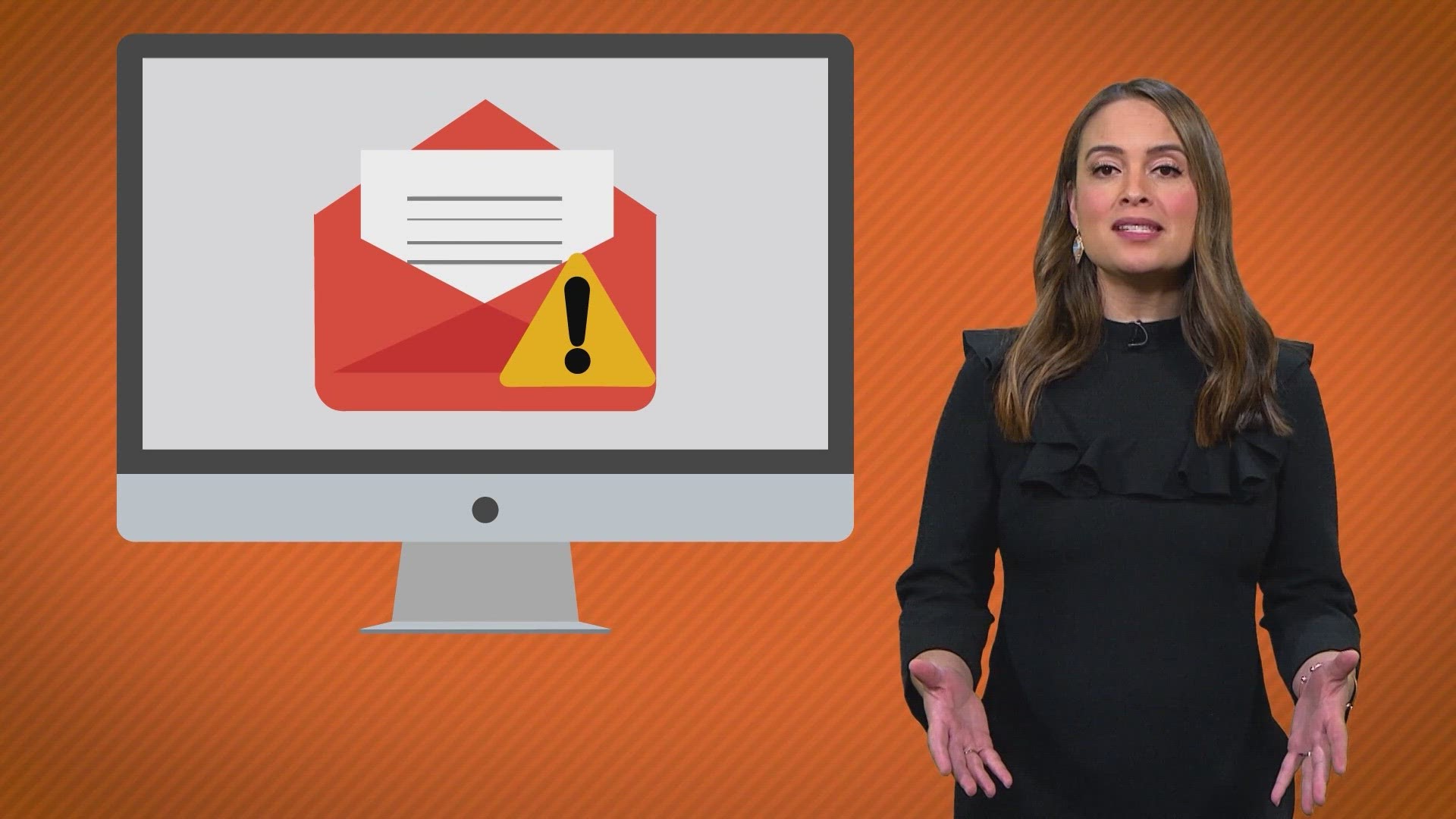DALLAS — There’s a lot to prepare for as Tax Day approaches on Tuesday, April 18.
Whether it’s gathering the necessary tax forms or receipts for deductions, unfortunately there’s one more thing to add on that to do list. People will need to be cautious of scammers.
Right now, the biggest scam going around this tax season is targeting small business owners. It’s become a big problem that the IRS is resending a warning about it. IRS officials say scammers are posing as Tax Preparers and offering to help small business owners apply for the Employee Retention Credit (ERC) for a large fee.
The Employee Retention Credit is legit. It’s a $26,000 refundable credit the IRS implemented during the pandemic to provide relief to small businesses. The problem is scammers are targeting people who do not qualify. The IRS says scammers are aggressively promoting these schemes on the radio and online and are charging large upfront fees or a fee that is contingent on the amount of the refund.
If you improperly claim this credit, you could be required to repay it along with penalties and interest. To make sure this doesn’t happen to you, review the Employee Retention Credit guidelines to make sure you’re eligible before trying to claim the credit.
An employer is eligible for the ERC if it:
- Sustained a full or partial suspension of operations limiting commerce, travel or group meetings due to COVID-19 and orders from an appropriate governmental authority or
- Experienced a significant decline in gross receipts during 2020 or a decline in gross receipts during the first three quarters of 2021 or
- Qualified in the third or fourth quarters of 2021 as a recovery startup business.
In addition, there are plenty of other scams going around this tax season. Here’s what they include.
- New scams urging people to use wage information on a tax return to claim false credits in hopes of getting a big refund.
Evolving phishing scams that use various pandemic-related themes to steal client data.
- Criminals making aggressive calls posing as IRS agents in hopes of stealing taxpayer money or personal information.
- Promoters claiming their services are needed to settle with the IRS, that their debts can be settled for “pennies-on-the-dollar” or that there is a limited window of time to resolve tax debts through the Offer in Compromise (OIC) program. These promoters are often referred to as “OIC Mills."
- IRS-impersonation scam that appears to primarily target educational institutions, including students and staff who have ".edu" email addresses.
- In the latest twist on a scam related to Social Security numbers, scammers claim to be able to suspend or cancel the victim’s SSN. It’s yet another attempt by con artists to frighten people into returning ‘robocall’ voicemails.
- Identity theft involving unemployment benefits.
- Criminals and scammers are trying to take advantage of the generosity of taxpayers who want to help victims of major disasters
Click here to learn more about the tax scams and consumer alerts from the IRS.
There are ways to protect yourself, your money and personal information.
- The IRS will never call to demand immediate payment through prepaid debit cards, gift cards or wire transfer.
- The IRS will never threaten to immediately bring in an officer to arrest you for not paying.
- The IRS will never call unexpectedly about a tax refund.
More tips and advice from experts for tax season:

